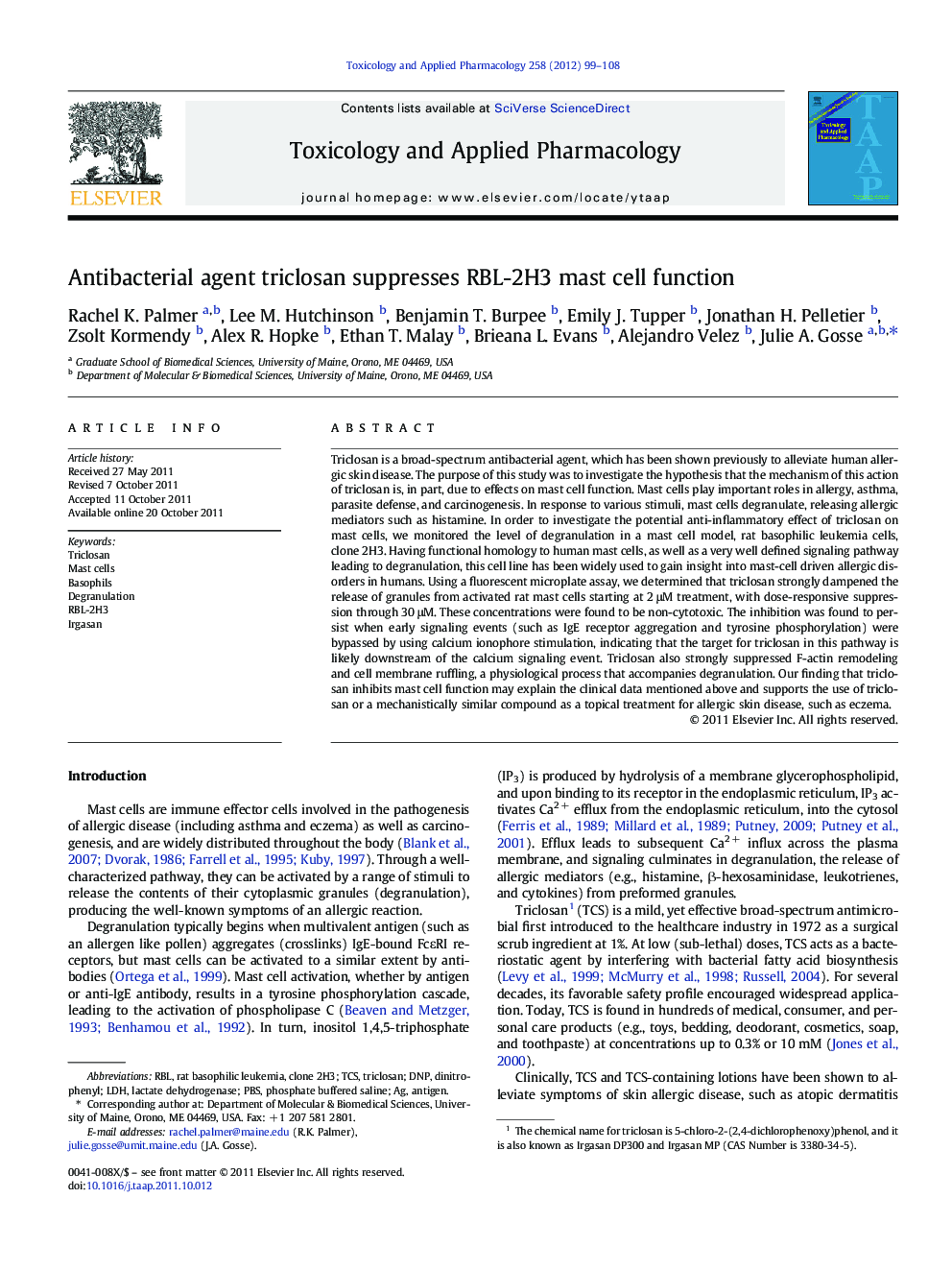| کد مقاله | کد نشریه | سال انتشار | مقاله انگلیسی | نسخه تمام متن |
|---|---|---|---|---|
| 2569411 | 1128528 | 2012 | 10 صفحه PDF | دانلود رایگان |

Triclosan is a broad-spectrum antibacterial agent, which has been shown previously to alleviate human allergic skin disease. The purpose of this study was to investigate the hypothesis that the mechanism of this action of triclosan is, in part, due to effects on mast cell function. Mast cells play important roles in allergy, asthma, parasite defense, and carcinogenesis. In response to various stimuli, mast cells degranulate, releasing allergic mediators such as histamine. In order to investigate the potential anti-inflammatory effect of triclosan on mast cells, we monitored the level of degranulation in a mast cell model, rat basophilic leukemia cells, clone 2H3. Having functional homology to human mast cells, as well as a very well defined signaling pathway leading to degranulation, this cell line has been widely used to gain insight into mast-cell driven allergic disorders in humans. Using a fluorescent microplate assay, we determined that triclosan strongly dampened the release of granules from activated rat mast cells starting at 2 μM treatment, with dose-responsive suppression through 30 μM. These concentrations were found to be non-cytotoxic. The inhibition was found to persist when early signaling events (such as IgE receptor aggregation and tyrosine phosphorylation) were bypassed by using calcium ionophore stimulation, indicating that the target for triclosan in this pathway is likely downstream of the calcium signaling event. Triclosan also strongly suppressed F-actin remodeling and cell membrane ruffling, a physiological process that accompanies degranulation. Our finding that triclosan inhibits mast cell function may explain the clinical data mentioned above and supports the use of triclosan or a mechanistically similar compound as a topical treatment for allergic skin disease, such as eczema.
► The effects of triclosan on mast cell function using a murine mast cell model.
► Triclosan strongly inhibits degranulation of mast cells.
► Triclosan suppresses membrane ruffling of activated mast cells.
► Triclosan's effects persist when early mast cell signaling events are bypassed.
► Supports use of triclosan as a topical treatment for eczema.
Journal: Toxicology and Applied Pharmacology - Volume 258, Issue 1, 1 January 2012, Pages 99–108